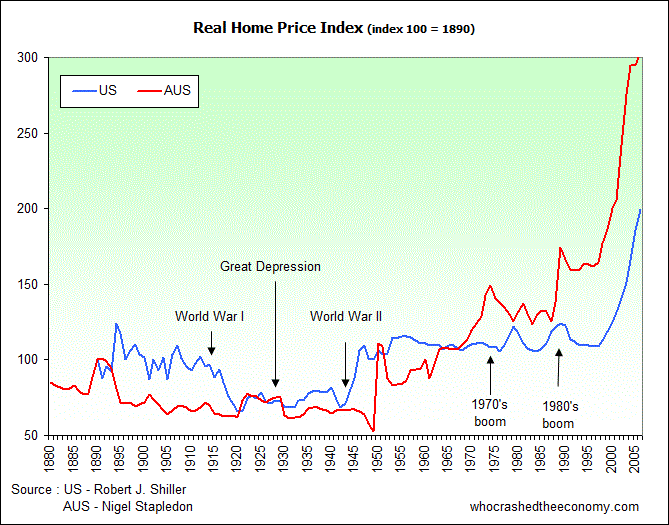Robert Schiller, author of "Traders, Guns and Money" has undertaken research on property dating back to 1629 and asserts that real house price growth is less than 1% at best.
The following article has information on this:
http://economistsview.typepad.com/economistsview/2006/03/shiller_longter.html
The following article has information on this:
http://economistsview.typepad.com/economistsview/2006/03/shiller_longter.html


